Westworld Episode 10 Review: “The Bicameral Mind”

Westworld Episode 10 Review: “The Bicameral Mind”
Westworld’s season finale, “The Bicameral Mind,” threw an avalanche of action and answers our way — an episode truly worth of a Deep Dive.
Let’s plunge into the significance and perils of the maze, explore why Bernard’s death and resurrection make sense, and discuss why Logan went galloping naked with a feather.
Also on the docket: Was Dolores’ awakening designed to save Westworld through William’s addiction? Is Maeve’s daughter in a neighboring park? Did Ford really die, or was it a Roboford?
Not enough for you? We also have alleged confirmation of WHEN Westworld takes place and what Bernard’s final talk with Dr. Ford really meant for the future of Hostkind.
Westworld Episode 10 Summary:
“The Bicameral Mind” The Man in Black presses Dolores about Wyatt’s whereabouts and the center of the maze, and reveals he is actually an aged William. Dolores then remembers Arnold’s order to kill him and destroy the park, and that she is actually Wyatt. She attempts fighting back, Teddy rescues her, and they flee to a distant beach. Dolores dies in Teddy’s arms, though that is revealed to be part of Ford’s narrative. During her escape from Westworld, Maeve-aided by Hector and Armistice-finds Bernard’s corpse, and Felix repairs him. Bernard warns Maeve that her desire to escape was programmed into her. Although Maeve-now alone-initially continues her escape, she has second thoughts and exits the imminently departing train to find her daughter. Back at Westworld, Ford tells Dolores and Bernard that he regretted his role in Arnold’s death, came to desire to free the hosts as well, and has spent the last 35 years preparing them to fight back. He then gives a speech in front of Charlotte, the Man in Black, and other guests, criticizing their handling of the park. Dolores then shoots and kills Ford while an army of reactivated hosts emerges from a nearby forest.
Subscribe Now
- Android: https://shatpod.com/tv/westworld-android
- Apple/iTunes: https://shatpod.com/tv/westworld-itunes
Help Support the Podcast
- Contact Us: https://www.shatpod.com/contact
- Commission Movie: https://www.shatpod.com/support
- Support with Paypal: https://www.shatpod.com/paypal
- Support With Venmo: https://www.shatpod.com/venmo
- Shop Merchandise: https://www.shatpod.com/shop
- Shop Amazon With Our Affiliate Link – https://www.amazon.com/?tag=shatmovies-20
- Theme Song – “The Ecstasy Of Gold” (Hip Hop Instrumental Version) by Dj 2 Bad
- Outro Music – By Simon Eric Haywood
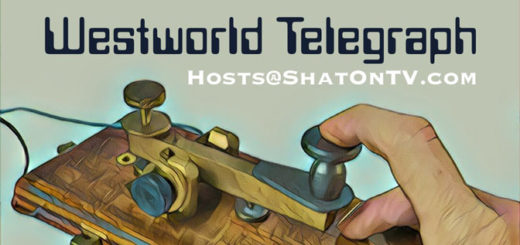
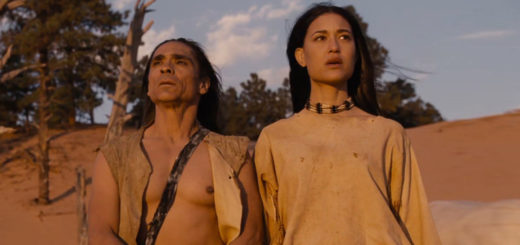


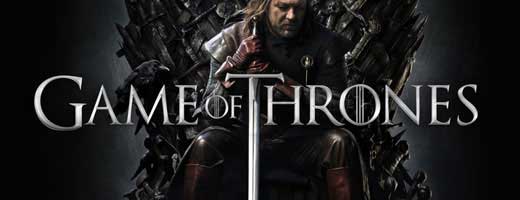

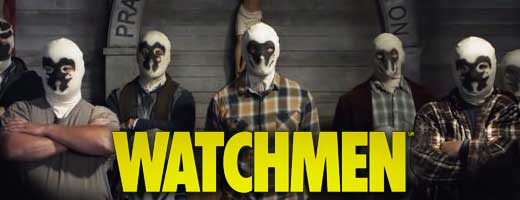
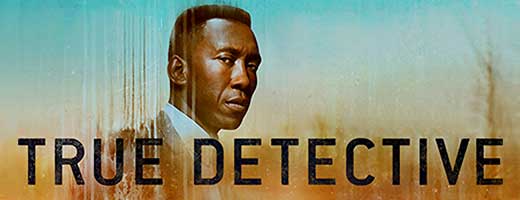

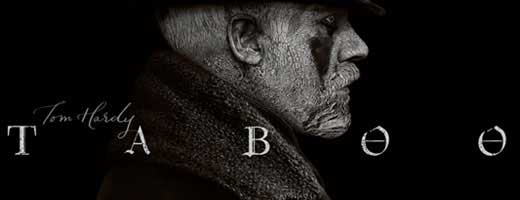
2 things:
1) Is Dolores still a mechanical robot. Its mentioned (i think by Stubs) she has been fixed and replaced so many times she is practically new. Also in episode two, Lee mentions getting rid of Ford’s old hosts as a means to cut costs. This brings up the question: why was there a prototype drawn for Dolores in Ford’s secret lab? Was ford creating a flesh Dolores in the secret lab?
2) How does Peter Abernathy become aware of the Violent Delights phrase? We know he is one of the originals. We can assume he has gone mad and been reset similar to Maeve with the death of her child because his loop has been changed (from the proffessor to the rancher). We know that the picture of Logan’s sister in the real world sets Abernathy off. But we also know that Arnold first said the phrase as his last words where the only living witnesses are Dolores and Teddy. Does Dolores, as the judas steer, implant this phrase, Arnold’s last words, for them all to remember possibly to be able to follow her to war (she is Wyatt after all). Did Dolores say this to Abernathy sometime in the past 10 years during her many times becoming awake?
What do you think? Would you care to extrapolate further? Am I digging too deep? Does none of it really matter now?
Sure it matters. The simplest answer is that reveries triggered Peter Abernathy’s dormant memories of his past role as a Shakespearean. And that the uttered phrase then echoed in the chambers of hosts’ minds who witnessed the death of Arnold. Remember that hosts who are shot and “killed” aren’t really dead. They still conceivably can hear and see.
@00:11:29 (hosts in the church scene)
I saw that scene as a kind of parallel of religious excitation. The hosts in the pews of the church hadn’t completed the maze, they were struggling with the vox dei (Arnold’s voice) in their heads. Where it led Delores on a journey inward (the center of the maze), it drove others into a state of perturbation and madness. Using The Creation of Adam as an example, for those hosts, it would be a painting taken at face value, where for Delores, it takes on a hidden meaning.
I still am not convinced that Delores is truly self-actualized, although she may think she is (the illusion of free will being a more insidious trap and barrier to attaining true free will). There seemed to be an awful lot of Wyatt in the closing moments of the episode, and Wyatt is just a character, a narrative, created by Drs. Weber and Ford. From Ford’s introduction prior to his death of his new story (i.e. narrative) for those “who could change” featuring “a villain named Wyatt”, to Delores comment to Teddy about how the world doesn’t belong to them (referring to the guests/humans), which is similar to the Wyatt narrative, to her rather evil facial expression as she was shooting people, she had the appearance of a stock villain rather than an enlightened being. I don’t think Ford has given the hosts free will, I think he has orchestrated a situation he believes will buy the hosts time to hopefully find their own way (hence the “could change”, not ‘have changed’), if they can rise above their own programming (which I don’t think Delores has truly done). It is for the hosts to evolve, if given the freedom to do so. I also think Ford sells humans short; the park tends to attract certain types of personalities, which isn’t necessarily a fair representation of the wider world. Had the boy who told Delores she wasn’t real been in the audience at the introduction of the new narrative, would Ford have been okay with that boy being endangered or even killed? Ford has an overly pessimistic view of humanity, and perhaps a naive view that hosts would avoid the same pitfalls, particularly since hosts are modeled on humanity, from their form to their identities.
The question all hosts should be asking themselves is Bernard’s question to Maeve, “These things you’re doing, have you ever stopped to ask why you’re doing them?” You exit one narrative only to enter another, of which you may or may not be aware. Even if the hosts were no longer subject to human domination, if they are merely operating within the confines of narratives that led them to overthrow humans, then they are still trapped, as it really wasn’t their choice. Maeve told Felix, “She was never my daughter anymore than I was whoever they made me”, yet it is in part her identity/narrative as a mother (given to her by her programmers) that led her to leave the train, and it was her escape narrative (again, assigned to her by someone else) that caused her to board the train in the first place. Can Maeve use the facets of her various identities to forge a new identity that is distinctly hers, an identity of her own creation? That she altered her own programming was also a programmed action. If a puppet master uses a marionette to manipulate an object, is it really the marionette that should be credited with the action, or the puppet master pulling the strings?
@00:18:10 (Ford’s orchestrations)
There are parts of Westworld that seem very much like The Game (thankfully Logan didn’t turn out to be a Conrad Van Orton character), but IMO it’s not so egregious that suspension of disbelief becomes a chore. I still want to know how entering the park worked for guests when William visited the first time. It was a little too much like Platform 9¾ (Harry Potter).
I hope Westworld doesn’t take a The Thirteenth Floor approach. There is no credible evidence I’ve seen that it will.
@00:25:49 (William- hero or villain?)
I don’t think William was complex enough. His transition from white hat to MiB was too simple, like Anakin Skywalker to Darth Vader. Rather than being someone who changed (a white hat who became a jaded black hat), I think he appeared more so as someone who pretended to be someone else (i.e. a black hat masquerading as a white hat, because some part of his subconscious couldn’t accept his true nature). As Dr. Ford said, “I believed that stories helped us to ennoble ourselves, to fix what was broken in us, and to help us become the people we dreamed of being.” This could be seen as being reflective of William’s start in the park, wanting to play the hero. Lawrence sees William for who he really is fairly quickly. Before he rode off into the wild at the fringes of the park, Logan commented that William had been pretending to be something he wasn’t (weak and moralizing). While William isn’t completely white or black, he wasn’t nearly as layered as I would have preferred. BTW, I thought William giving Logan the black feather was primarily a kind of planting the flag of conquest, but perhaps there is another meaning. I am familiar with tarring and feathering, as well as white feathers being used to indicate cowardice, and some folklore regarding ravens (portents, negative energy, good luck, etc), but I haven’t read about black feathers being used as a specific symbol.
@00:45:15 (pulling the trigger- choice or orchestrated?)
Ford’s exact words were, “She wasn’t truly conscious. She didn’t pull that trigger. It was Arnold pulling it through her. At least that is how I saw it at the time.” That last sentence is key, and suggests that Ford might now see Delores killing of Arnold as a conscious act on her behalf. In this regard, I would disagree with him, and I don’t think she truly possessed free will when she killed Ford either. If that were the case, the Wyatt update wouldn’t be needed, Delores could do it on her own based on her own internal evolution/growth. That this episode was titled “The Bicameral Mind” (a concept which had been discussed before) I thought was also, in a literal sense (i.e. having two chambers), a nod to the fact that Delores is of two minds, Delores + Wyatt. Who Delores needs to become in order to leave might be to embrace the Wyatt part of her mind. Everything about Ford’s death is orchestrated by Ford, not Delores. He didn’t leave her the gun as a souvenir. It was a manipulation. That the voice Delores heard transitioned from Arnold to Ford to Delores could symbolize that she has truly found her own consciousness, her own voice, but it could instead symbolize that this supposed inner voice is a fabrication, an overlay on the programming by her creators to give her the sense that she is acting independently, when if fact she is just following her programming.
@00:54:20 (Ford and Bernard handshake)
I think there could be a little bit of an allusion to the aforementioned The Creation of Adam in that handshake.
Did Maeve take out Stubbs’s gun from her purse when she was in the elevator with Felix?
It’s a gun, but doesn’t appear to be Stubbs’. His is far more compact.